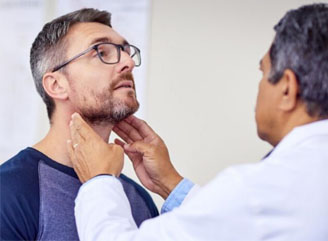The sooner a skin cancer is identified and treated, the better your chance of avoiding surgery or, in the case of a serious melanoma or other skin cancer, potential disfigurement or even death.
It is also a good idea to talk to your doctor about your level of risk and for advice on early detection. Become familiar with the look of your skin, so you pick up any changes that might suggest a skin cancer.
LOOK FOR:
- any crusty, non-healing sores
- small lumps that are red, pale or pearly in colour
- new spots, freckles or any moles changing in colour, thickness or shape over a period of weeks to months (especially those dark brown to black, red or blue-black in colour).
If you notice any changes consult your doctor. Your doctor may perform a biopsy (remove a small sample of tissue for examination under a microscope) or refer you to a specialist if he/she suspects a skin cancer.
ADVICE, TREATMENT & PREVENTION
- skin examinations
- mole checking
- pigmentation changes
- monitoring of discolouration
- skin biopsies
- preventative advice
- dermatologist referrals







